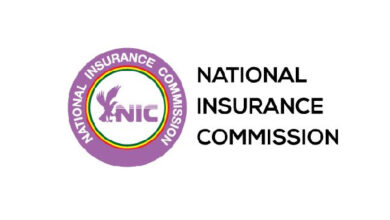Financial Benefits of Islamic Insurance: Ensuring Security and Compliance

Introduction
In today’s dynamic financial landscape, people are increasingly seeking financial security while ensuring ethical and religious compliance. Islamic insurance, also known as Takaful, provides a unique approach to insurance that aligns with Islamic principles and values. This article explores the financial benefits of Islamic insurance, shedding light on its functioning, advantages, types, and its differences from conventional insurance.
Understanding Islamic Insurance (Takaful)
Islamic insurance, or Takaful, is based on the principles of mutual assistance, cooperation, and shared responsibility within a community. Unlike conventional insurance, where the insured pays a premium to the insurer, Takaful operates on the concept of participants contributing to a common pool to support one another in times of need.
How Islamic Insurance Works
1. The Principle of Shared Responsibility
In Takaful, participants pool their contributions to create a fund that financially supports any member facing a loss or adversity. This cooperative system ensures that the burden is shared collectively, promoting a sense of unity and care within the community.
2. Elimination of Riba (Interest)
Islamic insurance strictly prohibits the use of interest (riba) in any transactions. Conventional insurance may involve interest-based investments, which goes against Islamic principles. Takaful companies invest funds in Shariah-compliant assets, ensuring ethical financial practices.
3. Investments in Halal Assets
Islamic insurance companies invest in businesses and ventures that comply with Islamic principles. This ethical approach to investment not only ensures compliance but also supports businesses with positive social impacts.
Advantages of Islamic Insurance
1. Risk-Sharing Model
Takaful’s risk-sharing model promotes solidarity and cooperation among participants. In times of loss, the community comes together to provide financial support, reducing the burden on individuals.
2. Social and Ethical Responsibility
Islamic insurance emphasizes social welfare and ethical responsibility. The system encourages the promotion of charitable causes and helping those in need, fostering a sense of compassion and empathy.
3. No Interest-Based Transactions
One of the most significant advantages of Takaful is its strict adherence to the prohibition of interest. Participants can have peace of mind, knowing their contributions are not involved in any interest-based activities.
4. Investments in Ethical Businesses
Takaful companies invest in halal businesses, contributing to the growth of ethical industries. This promotes sustainable economic development while maintaining compliance with Islamic principles.
5. Stronger Sense of Community
The cooperative nature of Takaful fosters a stronger sense of community, as participants are linked through mutual support and cooperation. This builds trust and camaraderie among members.
Types of Islamic Insurance
1. Family Takaful
Family Takaful provides protection and financial support to the insured’s family in the event of the policyholder’s disability, critical illness, or death.
2. General Takaful
General Takaful covers general assets, such as vehicles, property, and other tangible items, safeguarding against losses due to accidents or damages.
3. Health Takaful
Health Takaful offers medical coverage to individuals and families, ensuring access to quality healthcare services without financial strain.
4. Property Takaful
Property Takaful provides protection for real estate assets, including homes, commercial properties, and industrial premises, covering damages or losses caused by unforeseen events.
How Islamic Insurance Differs from Conventional Insurance
Islamic insurance stands apart from conventional insurance primarily in its adherence to Islamic principles, which include the prohibition of interest and ethical investments. While conventional insurance operates on a for-profit basis, Takaful emphasizes mutual assistance and social welfare.
Eligibility and Accessibility of Islamic Insurance
1. Inclusivity and Non-Discrimination
Islamic insurance promotes inclusivity and does not discriminate based on gender, race, or religion. It is accessible to all individuals seeking ethical and compliant insurance solutions.
2. Islamic Insurance Companies Worldwide
Islamic insurance has gained traction globally, with many specialized Takaful companies operating in various countries. This widespread presence enhances accessibility to those seeking Islamic insurance options.
Challenges and Future Prospects of Islamic Insurance
1. Limited Awareness and Understanding
A major challenge for Islamic insurance is the lack of awareness and understanding among potential customers. Educating the public about its benefits and principles is crucial for its growth.
2. Regulatory Frameworks
Establishing consistent and supportive regulatory frameworks is essential for the expansion of Islamic insurance into new markets.
3. Innovations in Islamic Finance
Embracing technological advancements and innovative practices within Islamic finance will enhance the efficiency and reach of Takaful.
Conclusion
Islamic insurance, with its emphasis on ethical practices, shared responsibility, and social welfare, offers a compelling alternative to conventional insurance. By adhering to Islamic principles and providing financial security, Takaful strengthens communities and fosters a sense of compassion and unity. As awareness grows and regulatory support increases, the future of Islamic insurance holds immense potential to benefit individuals, families, and businesses worldwide.
FAQs (Frequently Asked Questions)
1. Is Islamic insurance available to people of all religions?
Yes, Islamic insurance is accessible to individuals of all religions, promoting inclusivity and non-discrimination.
2. How does Takaful handle investments differently from conventional insurance?
Takaful companies invest in halal (permissible) assets, avoiding interest-based transactions, which aligns with Islamic principles.
3. Can I switch from conventional insurance to Islamic insurance?
Yes, you can switch to Islamic insurance to align your financial practices with Islamic principles and enjoy the benefits of Takaful.
4. Is Islamic insurance only available in Muslim-majority countries?
No, Islamic insurance companies operate worldwide, providing services to individuals and businesses across different regions.
5. What are the key advantages of Takaful over conventional insurance?
Takaful’s advantages include risk-sharing, ethical investments, no interest involvement, and a stronger sense of community among participants.




